The CBi abandoned years of inquiry and allowed the UPA government to manipulate it to favour railway minister Lalu Prasad and wife Rabri Devi.
The Central Bureau of Investigation abandoned years of inquiry and allowed the United Progressive Alliance government to manipulate it to favour railway minister Lalu Prasad and wife Rabri Devi in a case of disproportionate assets.
DNA’s investigations show that the CBI abandoned its claims against the duo, rubbished its original arguments, and went on to support the Union minister, opposing the Bihar government in the process.
Bihar advocate-general PK Shahi told DNA, “The same agency had moved a recommendation for appeal, soon after the acquittal (of Prasad and Rabri), saying it had enough evidence. A few months later, when the Bihar government decided to move the high court against the acquittal, the CBI joined hands with the accused, claiming the Bihar government had no locus standi in making an appeal. What can be more ridiculous?”
The blatant politicisation of the CBI is in line with other well-known instances. Over the past five years, the agency gave a clean chit to Congress politician Jagdish Tytler in the 1984 anti-Sikh riots case, withdrew a red-corner notice against Bofors scandal accused Ottavio Quattrocchi, and swung in opposing directions in a case of disproportionate assets against Samajwadi Party chief Mulayam Singh Yadav. But the agency’s handling of the disproportionate assets case against Lalu and Rabri may rank as its most shameless conduct yet.
On December 18, 2006, special CBI judge Muni Lal Paswan acquitted Prasad and Rabri of the charge of amassing assets worth Rs46 lakh, way beyond their known sources of income, during Prasad’s tenure as chief minister from 1990 to 1997.
The least the agency could have done thereafter was to keep quiet. But it joined hands with the accused and is party to a number of petitions in the Patna High Court and the Supreme Court of India, challenging the Bihar government’s appeal against the acquittal.
A CBI spokesman said, “The bureau cannot comment on the case. The bureau only gives comments at four stages: while registering a case, arrest, charge sheet, and conviction.”
The case was an offshoot of the Rs1,000 crore fodder scam in which Lalu Prasad was the main accused. In this scam, funds meant for cattle fodder were diverted from the animal husbandry department. The CBI began investigating the case on the orders of the Patna High Court in March 1996.
The disproportionate assets case was registered against Lalu Prasad on August 19, 1998, after which the CBI raided the chief minister’s official residence at 1, Anne Marg in Patna.
After Lalu Prasad and Rabri were acquitted, the CBI did not appeal in the high court. To be fair, the agency’s recommendation for an appeal was turned down by the Union law ministry on the basis of the additional solicitor-general’s opinion that the “case was not fit for an appeal”. The CBI was given a fresh task: to protect the accused, who were in power and crucial to the survival of the UPA government.
By February 2007, when it was clear to the Nitish Kumar government in Bihar that the CBI had been manipulated in favour of its political rivals, it went in appeal to the Patna High Court, challenging the verdict of the CBI court. The state government’s plea was that the husband-wife duo had “siphoned off public money and the case was an equal responsibility of the Bihar government”.
Over a month later, the CBI shocked everybody by opposing the state government’s appeal. But a single judge of the high court upheld the appeal, stating that it was “maintainable” under section 378 of the Criminal Procedure Code, relating to a case of acquittal, and ordered a re-trial.
The CBI then moved the Supreme Court in October 2007. The CBI’s argument in the apex court was that “the Centre, after considering conclusions and findings of the trial court, took a conscious and considered decision that no ground was made for filing an appeal against the judgment of the trial court”. This was in addition to similar pleas filed by Lalu Prasad and Rabri.
This was followed by counter appeals by the Nitish Kumar government, seeking dismissal of the CBI and Lalu Prasad’s petitions. The matter is pending.
“Instead of trying to scuttle a re-trial, the CBI should focus on getting conviction in other fodder scam cases, where they have been painfully slow,” said Shahi. Out of the 47 cases, judgments have been arrived at in only 20.
Mulayam Singh
Lawyer Vishwanath Chaturvedi initiated a public interest litigation seeking a probe into the assets of Mulayam Singh Yadav. In March 2007, the Supreme Court told the CBI to probe the allegation.
The CBI submitted a preliminary report in October 2007 and claimed to have sufficient evidence to book the Samajwadi Party leader. It sought permission to go ahead with the probe without reference to the Union government.
But by July 2008, the CBI’s stance changed after the turn of events in Parliament, where the Left withdrew support over the nuclear deal. As the Congress opened negotiations with the Samajwadi Party, the department of personnel and training started moving files to dilute the case against Yadav. Additional solicitor-general GE Vahanvati demolished the case with a single blow, stating that Yadav and his wife’s assets could not be clubbed together. Yadav’s assets plummeted from Rs50 crore to Rs1.5 crore.
On July 22, the Manmohan Singh government won the trust vote.
On December 6, the CBI moved the Supreme Court to withdraw its application to register a case against Yadav. The flip-flop drew adverse remarks from justice Altamas Kabir and justice Cyriac Joseph. “It means you are not acting independently,” the court said. “You are acting on behalf of the central government... It is quite incomprehensible what it [the CBI] has done. And (if) what it has done is true, only god will save us.” The outburst showed the court’s frustration at the manner in which the agency was being blatantly misused by the Centre.
At the March 31, 2009, hearing, after relations between the Congress and the Samajwadi Party had started to sour, the CBI made another U-turn, telling the Supreme Court that “it stands by its recommendation of October 2007 that a DA case is made out against Mulayam and that the opinion of the solicitor-general may be ignored”.
Yadav’s camp, meanwhile, submitted a set of CDs to the court where negotiations between the CBI and Samajwadi leaders were allegedly recorded.
The next hearing is on May 5. The elections are not over yet and there is, perhaps, room for further negotiation between the Congress and the Samajwadi Party. It would be interesting to see what the CBI has to say on May 5.
![submenu-img]() Viral video: Ghana man smashes world record by hugging over 1,100 trees in just one hour
Viral video: Ghana man smashes world record by hugging over 1,100 trees in just one hour![submenu-img]() This actress, who gave blockbusters, starved to look good, fainted at many events; later was found dead at...
This actress, who gave blockbusters, starved to look good, fainted at many events; later was found dead at...![submenu-img]() Taarak Mehta actor Gurucharan Singh operated more than 10 bank accounts: Report
Taarak Mehta actor Gurucharan Singh operated more than 10 bank accounts: Report![submenu-img]() Ambani, Adani, Tata will move to Dubai if…: Economist shares insights on inheritance tax
Ambani, Adani, Tata will move to Dubai if…: Economist shares insights on inheritance tax![submenu-img]() Cargo plane lands without front wheels in terrifying viral video, watch
Cargo plane lands without front wheels in terrifying viral video, watch![submenu-img]() DNA Verified: Is CAA an anti-Muslim law? Centre terms news report as 'misleading'
DNA Verified: Is CAA an anti-Muslim law? Centre terms news report as 'misleading'![submenu-img]() DNA Verified: Lok Sabha Elections 2024 to be held on April 19? Know truth behind viral message
DNA Verified: Lok Sabha Elections 2024 to be held on April 19? Know truth behind viral message![submenu-img]() DNA Verified: Modi govt giving students free laptops under 'One Student One Laptop' scheme? Know truth here
DNA Verified: Modi govt giving students free laptops under 'One Student One Laptop' scheme? Know truth here![submenu-img]() DNA Verified: Shah Rukh Khan denies reports of his role in release of India's naval officers from Qatar
DNA Verified: Shah Rukh Khan denies reports of his role in release of India's naval officers from Qatar![submenu-img]() DNA Verified: Is govt providing Rs 1.6 lakh benefit to girls under PM Ladli Laxmi Yojana? Know truth
DNA Verified: Is govt providing Rs 1.6 lakh benefit to girls under PM Ladli Laxmi Yojana? Know truth![submenu-img]() Alia Bhatt wears elegant saree made by 163 people over 1965 hours to Met Gala 2024, fans call her ‘princess Jasmine’
Alia Bhatt wears elegant saree made by 163 people over 1965 hours to Met Gala 2024, fans call her ‘princess Jasmine’![submenu-img]() Jr NTR-Lakshmi Pranathi's 13th wedding anniversary: Here's how strangers became soulmates
Jr NTR-Lakshmi Pranathi's 13th wedding anniversary: Here's how strangers became soulmates![submenu-img]() Streaming This Week: Heeramandi, Shaitaan, Manjummel Boys, latest OTT releases to binge-watch
Streaming This Week: Heeramandi, Shaitaan, Manjummel Boys, latest OTT releases to binge-watch![submenu-img]() Remember Ayesha Kapur? Michelle from Black, here's how actress, nutrition coach, entrepreneur looks after 19 years
Remember Ayesha Kapur? Michelle from Black, here's how actress, nutrition coach, entrepreneur looks after 19 years![submenu-img]() Remember Heyy Babyy's cute 'Angel' Juanna Sanghvi? 20 year-old looks unrecognisable now, fans say 'her comeback will...'
Remember Heyy Babyy's cute 'Angel' Juanna Sanghvi? 20 year-old looks unrecognisable now, fans say 'her comeback will...'![submenu-img]() Haryana Political Crisis: Will 3 independent MLAs support withdrawal impact the present Nayab Saini led-BJP government?
Haryana Political Crisis: Will 3 independent MLAs support withdrawal impact the present Nayab Saini led-BJP government?![submenu-img]() DNA Explainer: Why Harvey Weinstein's rape conviction was overturned, will beleaguered Hollywood mogul get out of jail?
DNA Explainer: Why Harvey Weinstein's rape conviction was overturned, will beleaguered Hollywood mogul get out of jail?![submenu-img]() What is inheritance tax?
What is inheritance tax?![submenu-img]() DNA Explainer: What is cloud seeding which is blamed for wreaking havoc in Dubai?
DNA Explainer: What is cloud seeding which is blamed for wreaking havoc in Dubai?![submenu-img]() DNA Explainer: What is Israel's Arrow-3 defence system used to intercept Iran's missile attack?
DNA Explainer: What is Israel's Arrow-3 defence system used to intercept Iran's missile attack?![submenu-img]() This actress, who gave blockbusters, starved to look good, fainted at many events; later was found dead at...
This actress, who gave blockbusters, starved to look good, fainted at many events; later was found dead at...![submenu-img]() Taarak Mehta actor Gurucharan Singh operated more than 10 bank accounts: Report
Taarak Mehta actor Gurucharan Singh operated more than 10 bank accounts: Report![submenu-img]() Aavesham OTT release: When, where to watch Fahadh Faasil's blockbuster action comedy
Aavesham OTT release: When, where to watch Fahadh Faasil's blockbuster action comedy![submenu-img]() Sonakshi Sinha slams trolls for crticising Heeramandi while praising Bridgerton: ‘Bhansali is selling you a…’
Sonakshi Sinha slams trolls for crticising Heeramandi while praising Bridgerton: ‘Bhansali is selling you a…’![submenu-img]() Sanjeev Jha reveals why he cast Chandan Roy in his upcoming film Tirichh: 'He is just like a rubber' | Exclusive
Sanjeev Jha reveals why he cast Chandan Roy in his upcoming film Tirichh: 'He is just like a rubber' | Exclusive![submenu-img]() IPL 2024: Mumbai Indians knocked out after Sunrisers Hyderabad beat Lucknow Super Giants by 10 wickets
IPL 2024: Mumbai Indians knocked out after Sunrisers Hyderabad beat Lucknow Super Giants by 10 wickets![submenu-img]() PBKS vs RCB IPL 2024: Predicted playing XI, live streaming details, weather and pitch report
PBKS vs RCB IPL 2024: Predicted playing XI, live streaming details, weather and pitch report![submenu-img]() PBKS vs RCB IPL 2024 Dream11 prediction: Fantasy cricket tips for Punjab Kings vs Royal Challengers Bengaluru
PBKS vs RCB IPL 2024 Dream11 prediction: Fantasy cricket tips for Punjab Kings vs Royal Challengers Bengaluru![submenu-img]() Watch: Bangladesh cricketer Shakib Al Hassan grabs fan requesting selfie by his neck, video goes viral
Watch: Bangladesh cricketer Shakib Al Hassan grabs fan requesting selfie by his neck, video goes viral![submenu-img]() IPL 2024 Points table, Orange and Purple Cap list after Delhi Capitals beat Rajasthan Royals by 20 runs
IPL 2024 Points table, Orange and Purple Cap list after Delhi Capitals beat Rajasthan Royals by 20 runs![submenu-img]() Viral video: Ghana man smashes world record by hugging over 1,100 trees in just one hour
Viral video: Ghana man smashes world record by hugging over 1,100 trees in just one hour![submenu-img]() Cargo plane lands without front wheels in terrifying viral video, watch
Cargo plane lands without front wheels in terrifying viral video, watch![submenu-img]() Tiger cub mimics its mother in viral video, internet can't help but go aww
Tiger cub mimics its mother in viral video, internet can't help but go aww![submenu-img]() Octopus crawls across dining table in viral video, internet is shocked
Octopus crawls across dining table in viral video, internet is shocked![submenu-img]() This Rs 917 crore high-speed rail bridge took 9 years to build, but it leads nowhere, know why
This Rs 917 crore high-speed rail bridge took 9 years to build, but it leads nowhere, know why 

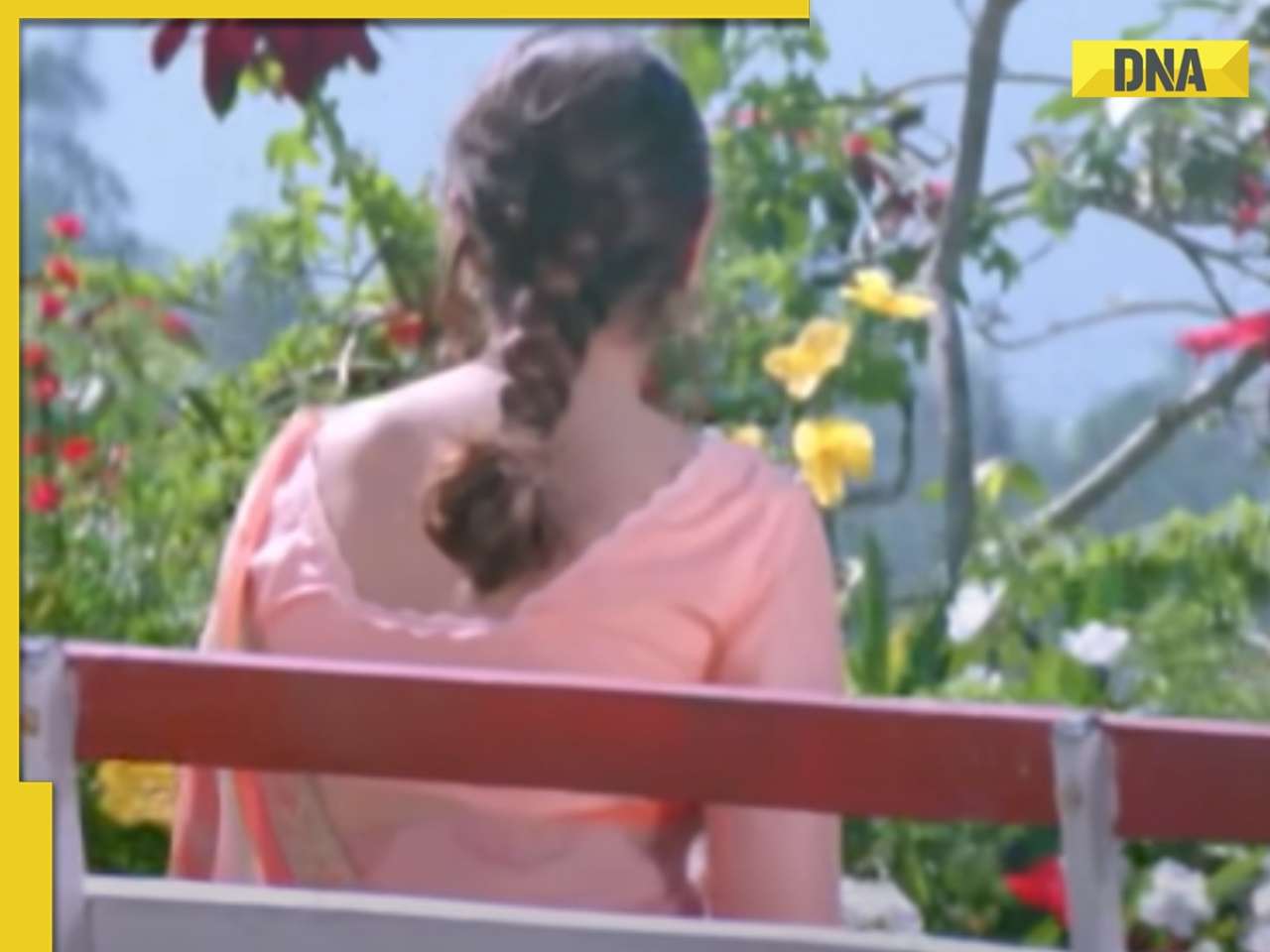
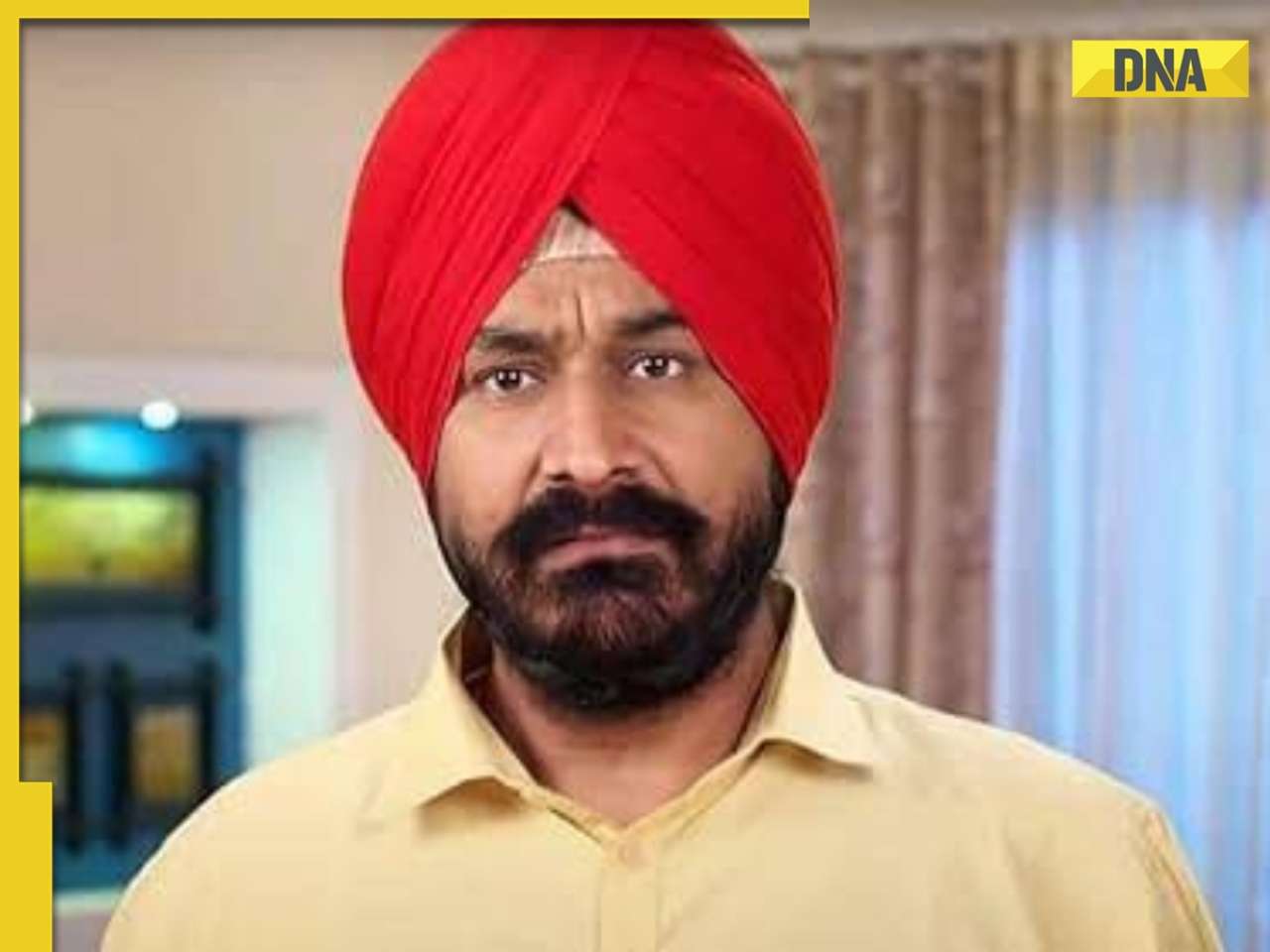






















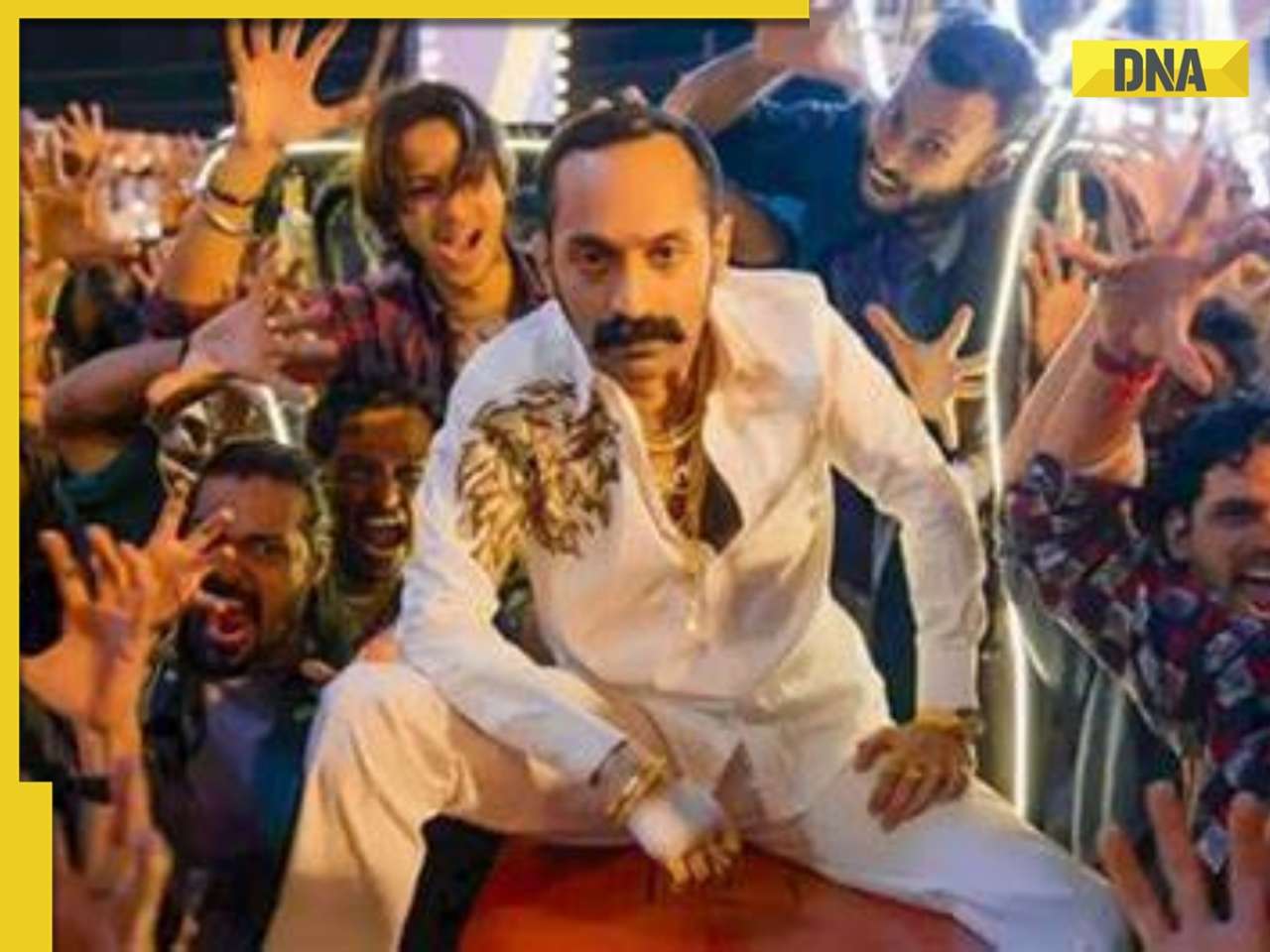

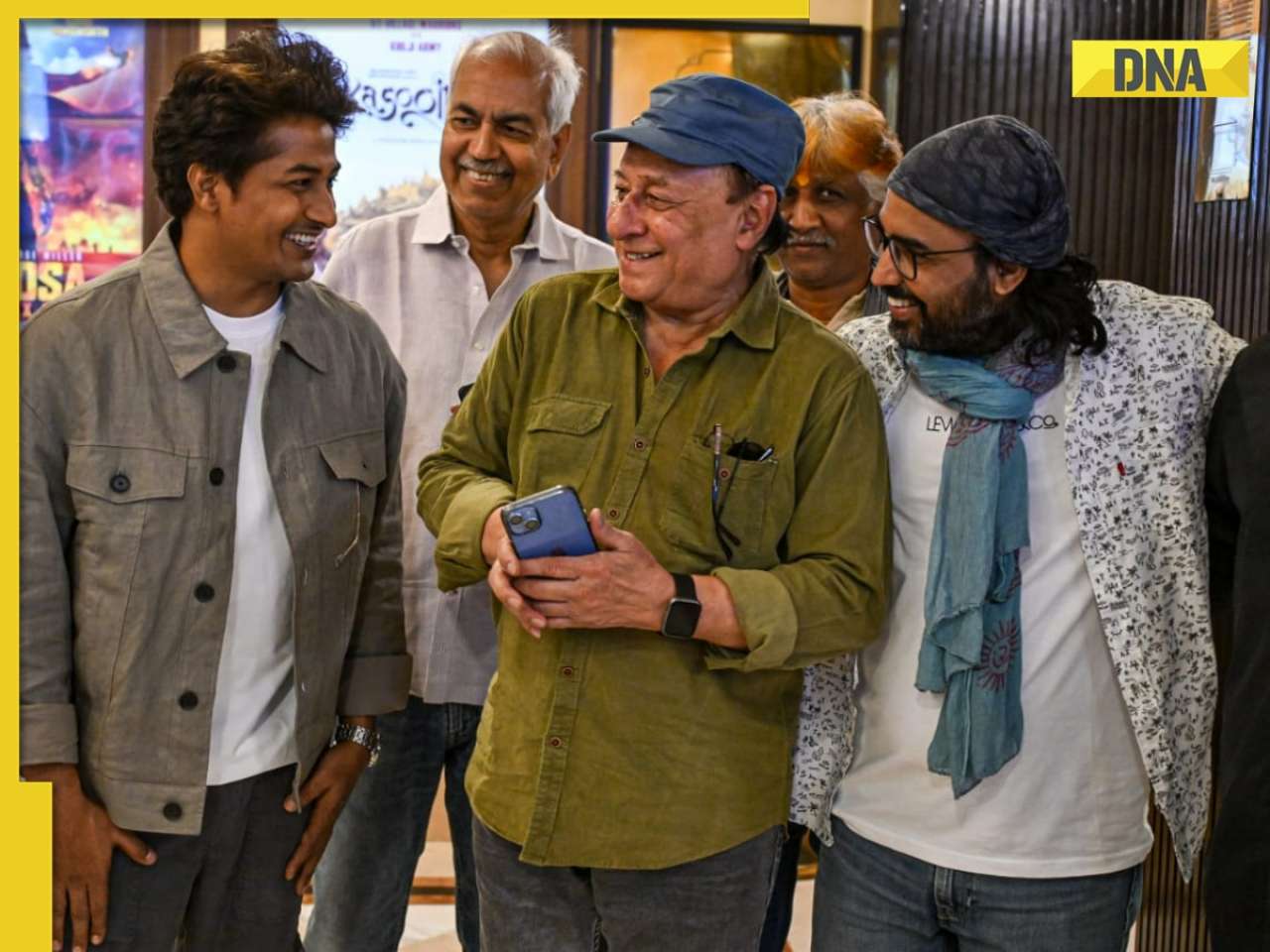

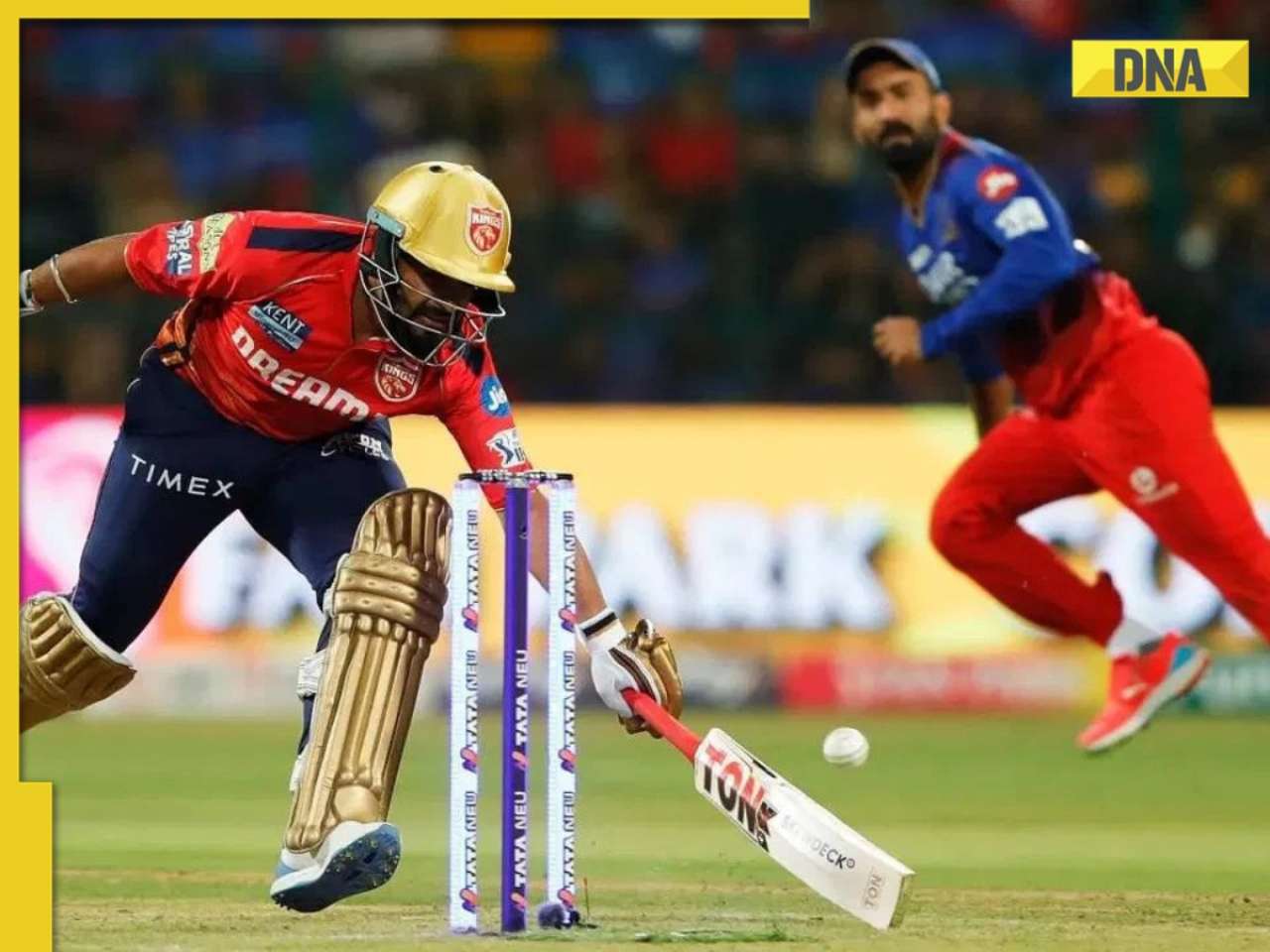

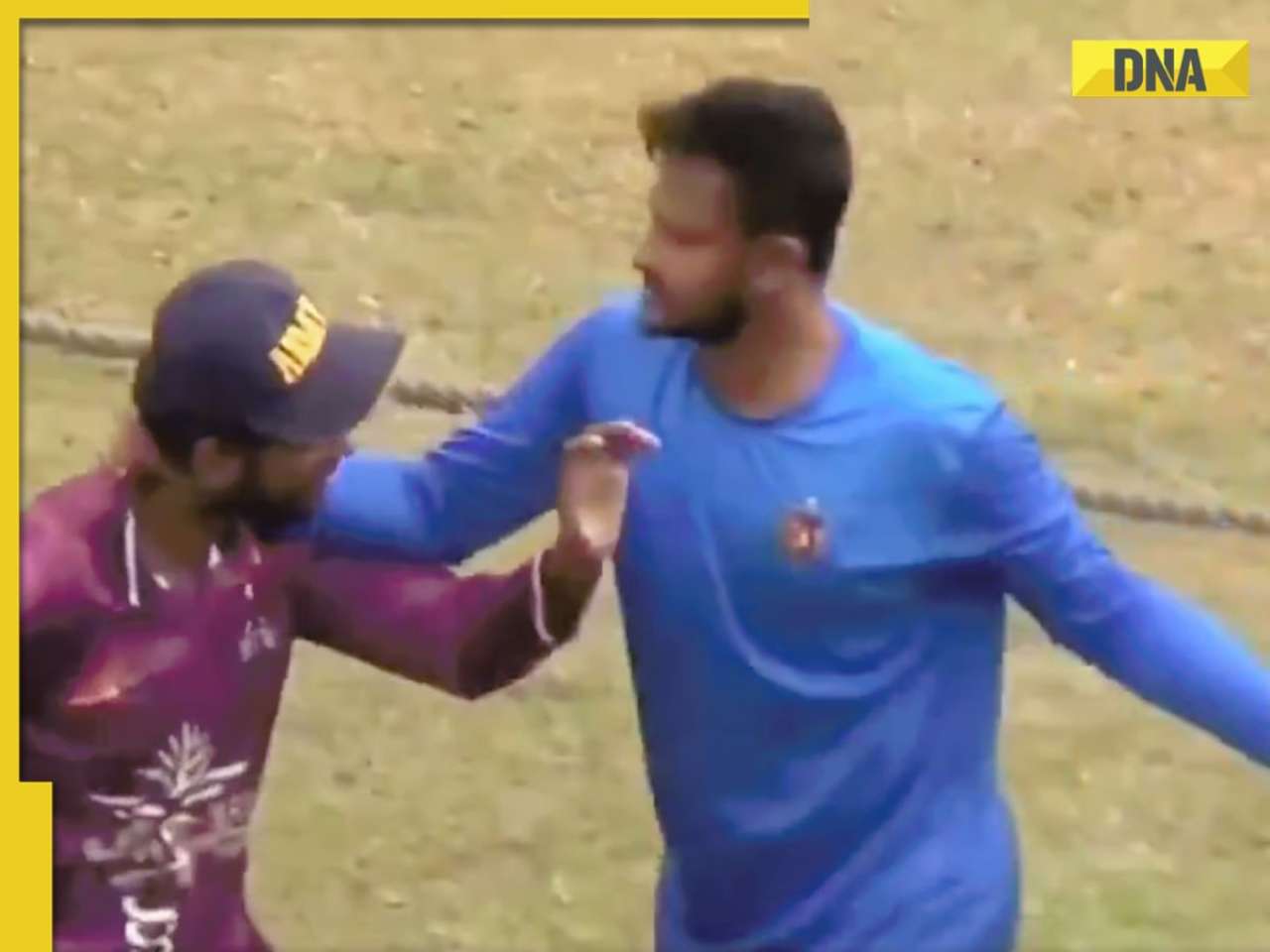

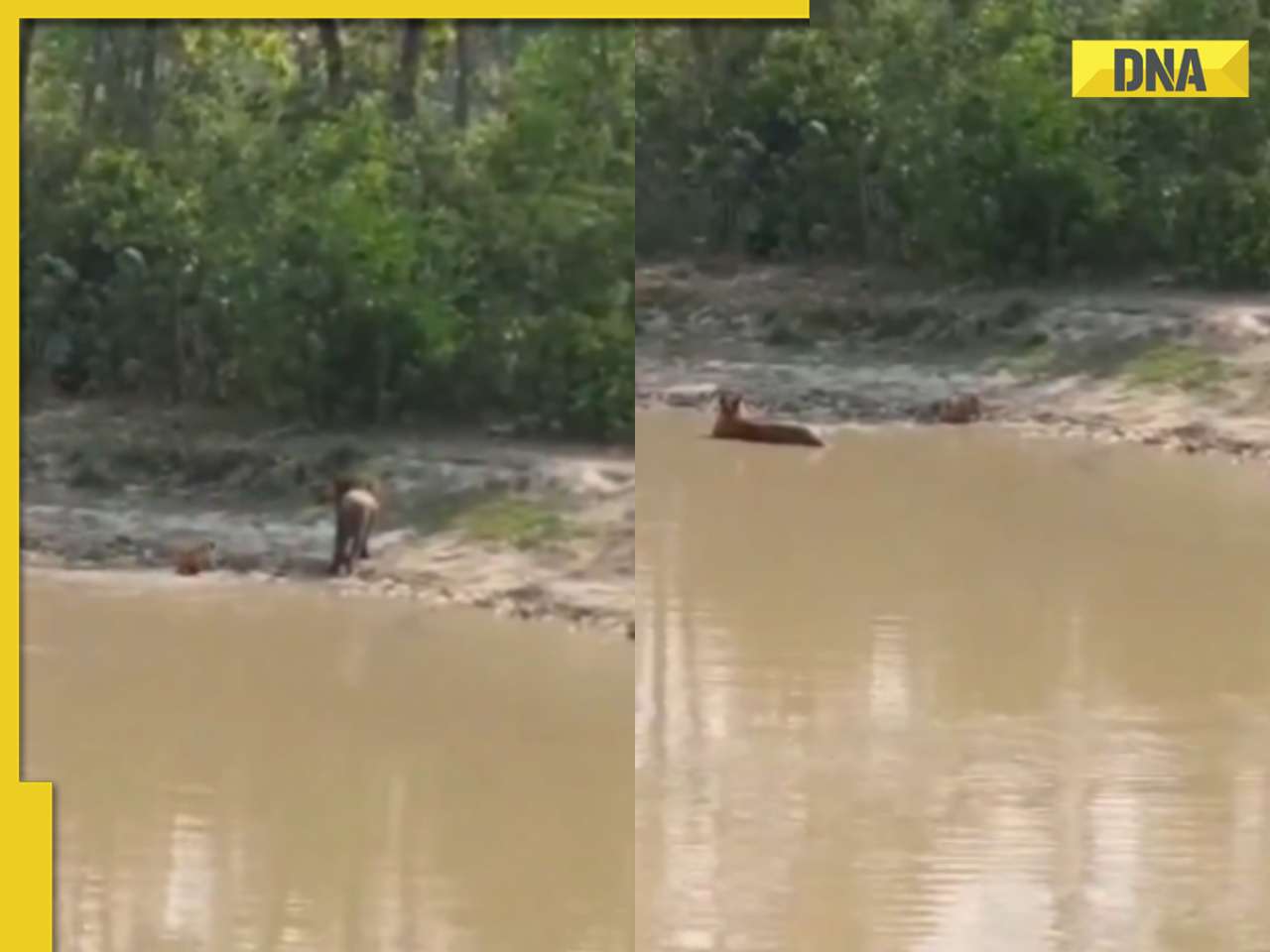
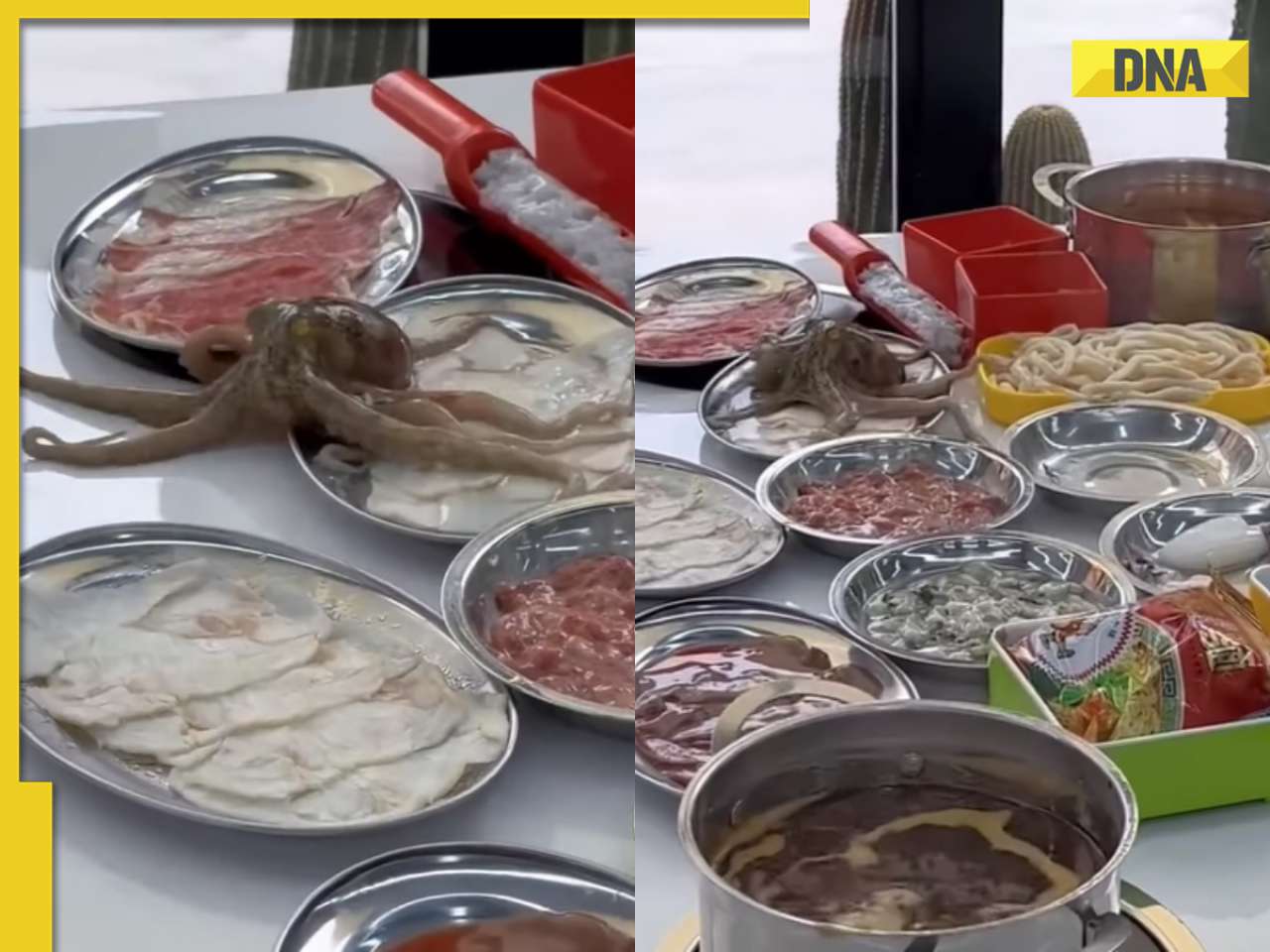
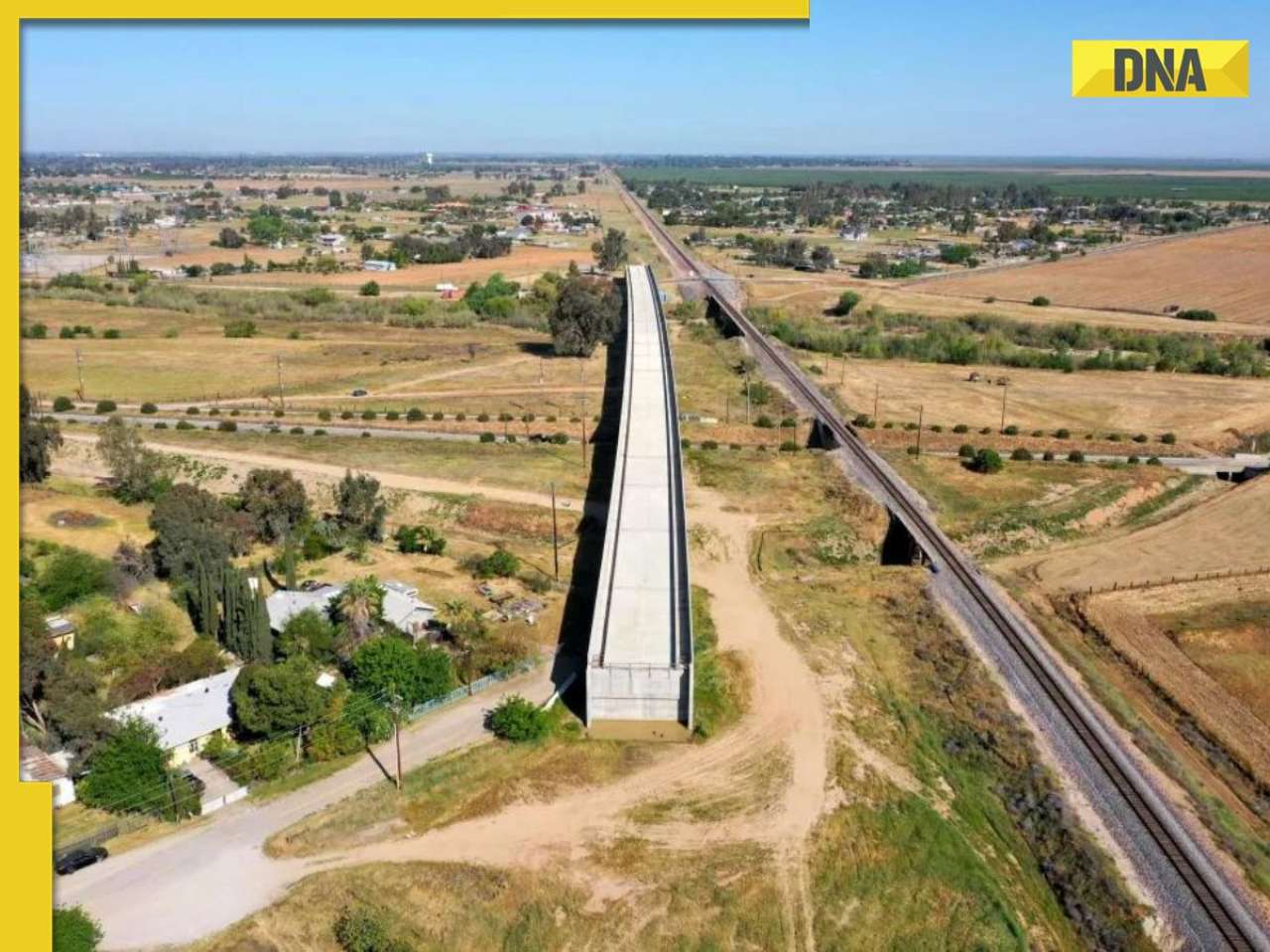


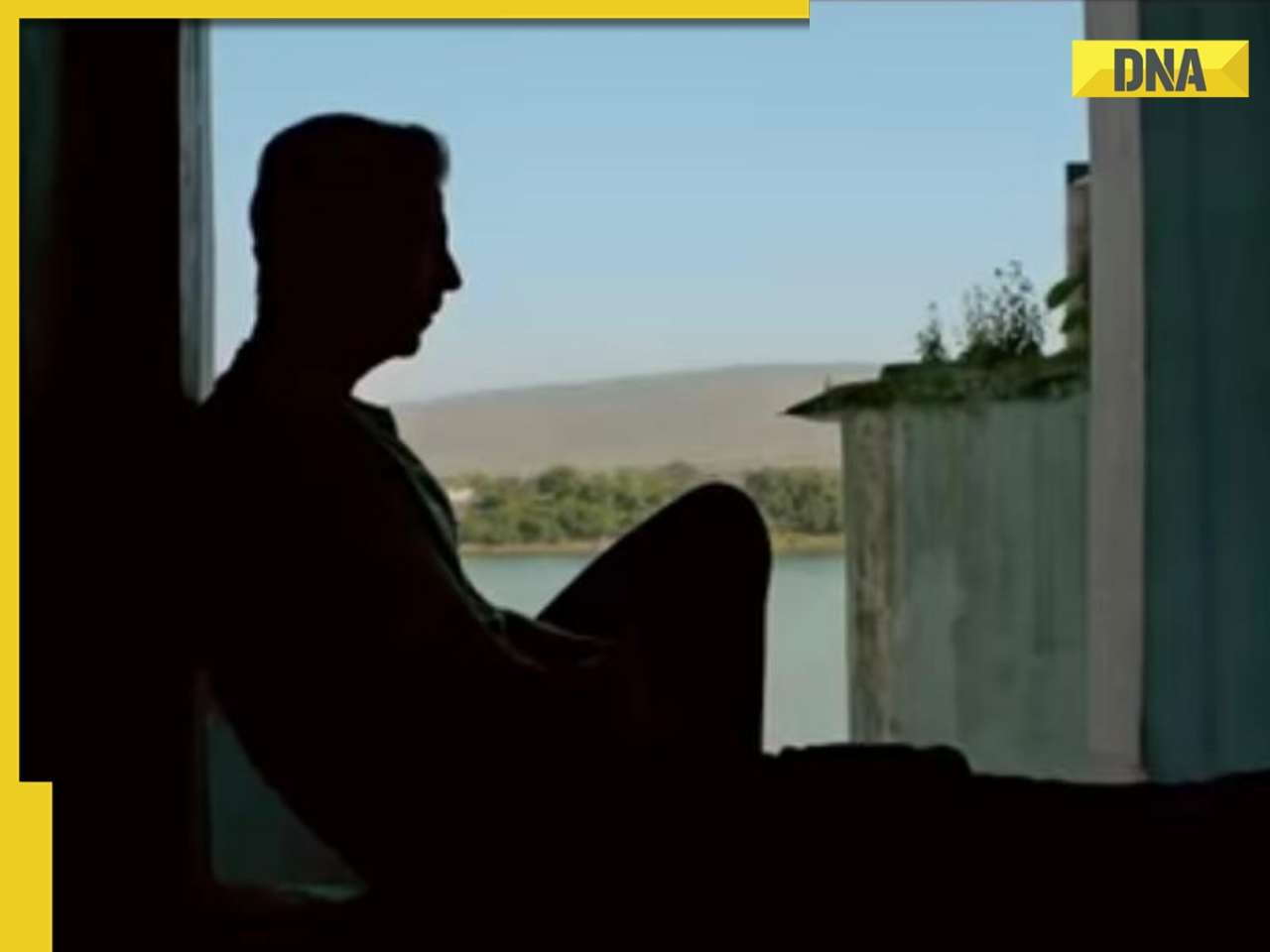











)
)
)
)
)
)